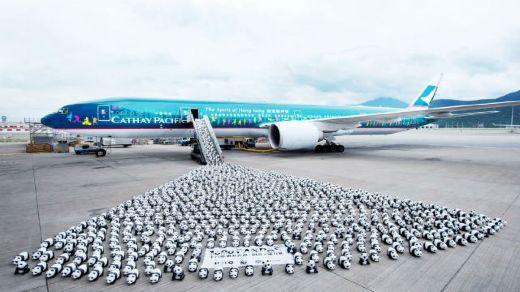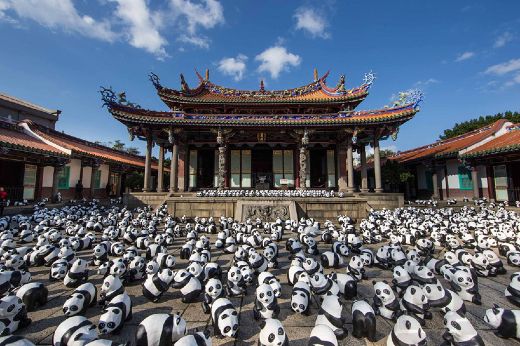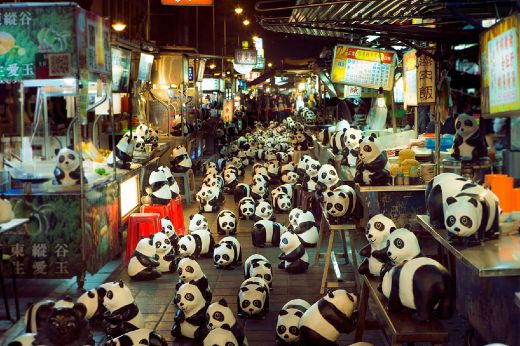
On June 9th, even the most rushed traveler at Hong Kong's International airport paused to admire the mesmerizing sight of 1,600 pandas, each the size of a human baby, some sitting, others standing - all eager to be whisked away to the city's numerous landmarks. As you may have already guessed, they were not live animals but replicas made from recycled materials by French sculptor, Paulo Grangeon.

The inanimate sculptures were not in Hong Kong to see the city, but to raise awareness that if something is not done soon, paper mache pandas may be the only kind left for the world to admire. And of course 1600 was not picked randomly - That's the number of pandas that experts believe are left in the wild.

After being exhibited in various parts of the beautiful city, the pandas are spending their final days at the headquarters of PMQ, a non-profit organization that promotes arts, creativity, and education. The paper mache sculptures will remain here until July 17th, before continuing their world tour to a yet-to-be-disclosed location. However, to ensure that the residents of Hong Kong do not forget them, Paulo has created a unique panda family complete with a papa, mama, and two baby bears, who will remain behind and serve as ambassadors for the city's most popular family-friendly attractions.

The '1600 pandas' project was commissioned in 2008 by the World Wildlife Federation. Since then, the paper mache animals have traversed through France, Netherlands, Italy and Switzerland, raising both awareness and much-needed funds to try to reverse the dire situation facing pandas. This is not the first time Paulo has been asked to use his paper mache skills to create animal awareness. The French sculptor's previous assignments include 120 whales for the Overseas Ministry of France and 200 black bears for the officials of Taiwan.

For those of you that are a little hazy, paper mache which means 'chewed paper' in French, is a material that comprises of paper pieces or even pulp that is bound together using an adhesive, to create works of art. In projects where the objects need to be sturdier, the material is sometimes reinforced with textiles.
Resources: hongkongtraveller.com, pmq.org.hk,time.com